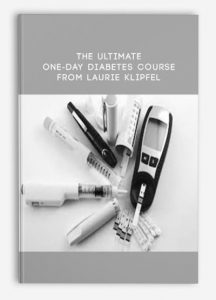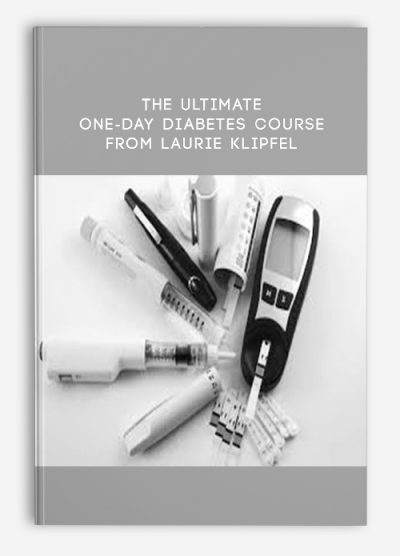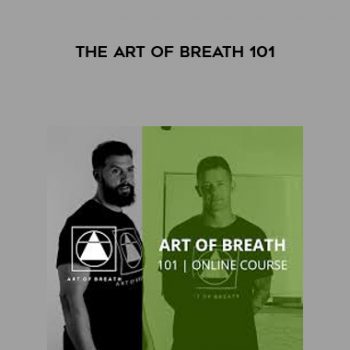 The Ultimate One-Day Diabetes Course from Laurie Klipfel
The Ultimate One-Day Diabetes Course from Laurie Klipfel
More information about Medical:
Medicine is the science and practice of establishing the diagnosis, prognosis, treatment, and prevention of disease.
Medicine encompasses a variety of health care practices evolved to maintain and restore health by the prevention and treatment of illness.
Contemporary medicine applies biomedical sciences, biomedical research, genetics, and medical technology to diagnose, treat, and prevent injury and disease,
typically through pharmaceuticals or surgery, but also through therapies as diverse as psychotherapy, external splints and traction, medical devices, biologics, and ionizing radiation, amongst others.
Medicine has been around for thousands of years, during most of which it was an art (an area of skill and knowledge) frequently having connections to the religious and
philosophical beliefs of local culture. For example, a medicine man would apply herbs and say prayers for healing, or an ancient philosopher and physician would apply bloodletting according to the theories of humorism.
In recent centuries, since the advent of modern science, most medicine has become a combination of art and science (both basic and applied, under the umbrella of medical science).
While stitching technique for sutures is an art learned through practice, the knowledge of what happens at the cellular and molecular level in the tissues being stitched arises through science.
Outline:
Diabetes: Current Diagnostic Criteria and Prevalence
- Type 1/Type 2
- Pregnancy and diabetes
- Metabolic syndrome/pre-diabetes
- Other causes of hyperglycemia
Importance of Glycemic Control
- Outpatient:
- Acute Complications: Causes, Symptoms and Treatment
- Diabetic ketoacidosis (DKA)
- Hyperglycemic hyperosmolar non-ketotic syndrome (HHNK)
- Hypoglycemia
- Infection
- Fatigue/depression
- Chronic Complications:
- Prevention, Identification, and Treatment
- Cardiovascular disease
- Peripheral vascular disease
- Retinopathy
- Nephropathy
- Neuropathy
- Acute Complications: Causes, Symptoms and Treatment
- Inpatient:
- Morbidity
- Mortality
- Length of stay
Goals of Therapy
- Glucose control
- Blood pressure control
- Lipid management
- Smoking cessation
- Improved “well-being”
Treatment
- AADE-7 behavioral goals
- Healthy Eating (carbohydrate counting, balanced fat/protein/carb)
- Being active with complications of diabetes
- Healthy coping/stress management/depression treatment
- Monitoring: frequency, timing and evaluation of results
- Risk reduction
- Problem-solving with case examples
- Medication: Indications and Contraindications
- Oral medications:
- Sulfonylureas
- Meglitinides
- Thiazolidinediones (TZD)
- Biguanides
- Alpha-glucosidase inhibitors
- DPP-4 inhibitors
- SGLT-2 inhibitors
- Combinations
- Insulin:
- Action times
- Basal/bolus dosing
- Benefits of insulin pump therapy
- Management of insulin pump in the hospital
- Incretin Mimetics: Byetta
- Amylinomimetics: Symlin
- Oral medications:
New Therapies
-
- Glucose sensors
- Sensor-augmented insulin pumps
- On the Horizon: Closed loop insulin pumps
- Improved pancreatic transplants
- Many combination pills
- More DPP-4 inhibitors
- Obesity medications
- Stem cell research
New Medications
Patient Education and Empowerment Techniques
- Adult learning styles
- Setting “SMART” goals
- Motivational techniques
Resources for Patients and Professionals
Description:
While 1 in 13 Americans have diabetes; 1 in 4 are diagnosed with pre-diabetes.
All healthcare professionals will care for patients with diabetes, pre-diabetes or metabolic syndrome on a daily basis, regardless of specialty. As management of diabetes becomes increasingly complex, it is imperative to keep up to date on new treatment options and standards regarding complication prevention. You play an important role in diabetes prevention, care, and management. Your role begins with a solid understanding of diabetes and its treatment.
Attend this seminar and increase your understanding of diabetes and pre-diabetes, and learn evidence-based pharmacological and non-pharmacological techniques for glucose control. You will leave with an in-depth understanding of the latest approaches in assessing and treating patients with diabetes, as well as new skills to apply for those at risk for diabetes.
Laurie Klipfel will provide you with strategies to optimize patient education and empowerment so you can improve the care you provide to diabetes patients.













tristian –
This is Digital Download service, the course is available at Coursecui.com and Email download delivery.